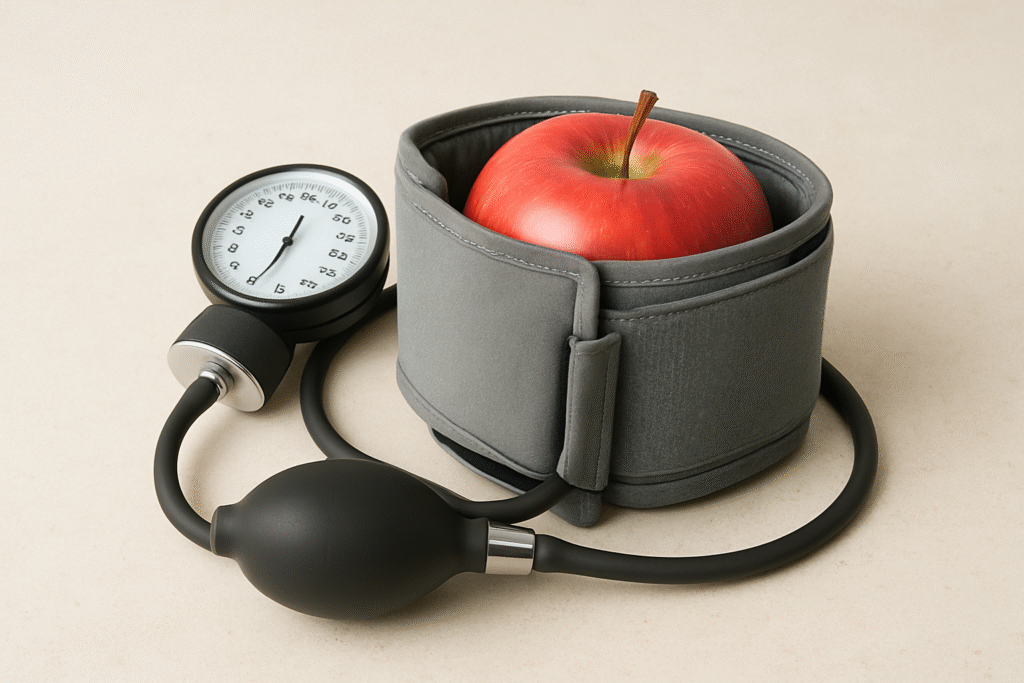
🧠💓 Can Gut Health Help Lower Your Blood Pressure?
A warm dive into microbes, inflammation, and the silent power of your belly
We’re only just beginning to understand how deeply connected the body is — and your gut may be playing a bigger role in your heart health than you ever imagined.
A growing number of studies are now suggesting that the microbiome — the bustling population of bacteria and other microbes living in your digestive system — may influence your blood pressure.
That’s right: your belly bugs might be messing with your blood pressure. Or helping it. It all depends on balance.
🧪 What the science says
Researchers have found that people with high blood pressure often have a different gut microbiome makeup compared to those with healthy readings. These differences aren’t random — certain bacteria are more common, while others seem to be missing. And that matters.
Your gut bacteria produce tiny molecules called metabolites. Some of these are helpful — like short-chain fatty acids (SCFAs), which can help blood vessels relax and reduce inflammation. Others, like TMAO (trimethylamine-N-oxide), are more problematic and may increase cardiovascular risk.
📚 Nature Reviews Nephrology, 2022
When the microbiome falls out of balance (a state called dysbiosis), it can disrupt the gut barrier. That can lead to low-grade inflammation and affect major systems like the autonomic nervous system or hormonal regulation of blood pressure — such as the renin–angiotensin–aldosterone system. These are not minor influences — they’re central to how the body maintains vascular tone and fluid balance.
📚 Nature Reviews Nephrology, 2022
💊 Can microbes affect medication, too?
Yes — and this is wild. Some gut microbes can literally deactivate medications, including blood pressure meds like ACE inhibitors. That might partly explain why some people don’t respond well to standard prescriptions.
📚 Hypertension Journal, AHA, 2022
🌿 What can we do with this information?
We’re not at the point of prescribing probiotics instead of pills — yet. But researchers are actively exploring ways to nudge the microbiome with:
-
Diets rich in fiber, polyphenols, and fermented foods
-
Carefully selected prebiotics and probiotics
-
Possibly, in the future, tailored microbiome interventions like fecal transplants
That last one might sound off-putting — but it’s already being trialled in clinical settings with promising results.
🤲 Gentle takeaways for real life
As a massage therapist with a deep interest in the body’s internal balance, I often see clients dealing with stress, high blood pressure, or fatigue. It’s no surprise that calming the nervous system can ease many of these symptoms. But it’s worth remembering: we also need to nourish our internal ecology.
If you’re managing your blood pressure or cardiovascular health:
-
Don’t ignore your digestion.
-
Be curious about your gut health.
-
Know that small changes — in food, movement, or relaxation — add up.
And perhaps most importantly, know that science is on your side — we’re learning more every day about how your body works as one intelligent whole.
Related posts:
- Getting Your Protein From Plants May Help You Live Longer Japanese men and women who consumed the most plant proteins had a lower rate of cardiovascular death and stroke. Source: Getting Your Protein From Plants May Help You Live Longer Interesting study published in NYTimes. Some unpicking and research to do here, but initially looks like a very interesting and...
- Weight Training heavy weights for fewer reps no better than light weights for more reps https://www.ncbi.nlm.nih.gov/pmc/articles/PMC3404827/ An interesting piece of research that seems to be gaining a bit of interest in the sport world. That lifting heavy is not necessarily the only way of getting to where you want to go. You...
- Stop Thought Viruses: I’m Old and That’s Why I Have Constant Neck Stiffness Thoughts and behaviours that can get in our way of wellness and recovery...
- Testosterone: A Magic Button Myth This content addresses the allure of advertisements claiming to increase testosterone levels and the misconceptions surrounding testosterone decline in men as they age. While testosterone does decrease gradually, the symptoms often blamed on low levels are more frequently linked to lifestyle issues like stress and poor sleep. Real solutions involve...
